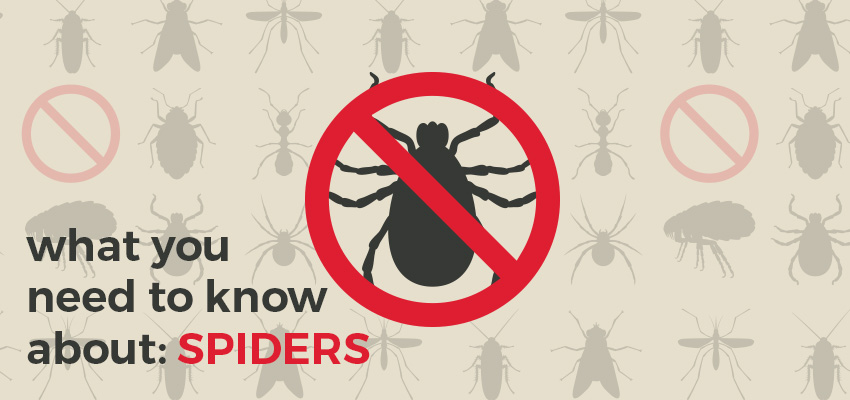No one wants to find spiders in and around their home, but unfortunately spiders are all over. If you want a healthy and safe house, getting rid of spiders is a great first step. The best way to eliminate spiders all together is to call in a professional.
Here are a few helpful things to know about spiders:
What kind of spiders are commonly found in homes?
There are 39 different species of spiders found in North Carolina. Out of those 39, only 20 are considered common as they appear in large numbers. Black Widows and Brown Recluses are two of the most venomous spiders found in North Carolina. The other species are as follows:
- Grass Spiders (Agelenopsis spp.)
- Black and Yellow Garden Spiders (Argiope Aurantia)
- Banded Garden Spiders (Argiope Trifasciata)
- Ant Mimic Spiders (Castianeira Longipalpa)
- Longlegged Sac Spiders (Cheiracanthium Mildei)
- Fark Fishing Spiders (Dolomedes Tenebrosus)
- Six-Spotted Fishing Spiders (Dolomedes Triton)
- Woodlouse Hunter Spiders (Dysdera Crocata)
- Eastern Parson Spiders (Herpyllus Ecclesiasticus)
- Carolina Wolf Spiders (Hogna Carolinensis)
- Southern House Spiders (Kukulcania Hibernalis)
- Southern Black Widow Spiders (Latrodectus Mactans)
- Orchard Orbweaver Spiders (Leucauge Venusta)
- Brown Recluse Spiders (Loxosceles Reclusa)
- Gray Wall Jumper Spiders (Menemerus Bivittatus)
- Hacklemesh Weaver Spiders (Metaltella Simony)
- Arrowshaped Micrathena Spiders (Micrathena Sagittata)
- Goldenrod Crab Spiders (Misumena Vatia)
- Whitebanded Crab Spiders (Misumenoides Formosipes)
- Spotted Orbweaver Spiders (Neoscona Crucifera)
- Common House Spiders (Parasteatoda Tepidariorum)
- Green Lynx Spiders (Peucetia Viridans)
- Bold Jumper Spiders (Phidippus Audax)
- Longbodied Cellar Spiders (Pholcus Phalangioides)
- Nursery Web Spiders (Pisaurina Mira)
- Tan Jumping Spiders (Platycryptus Undatus)
- Zebra Jumper Spiders (Salticus Scenicus)
- Spitting Spiders (Scytodes Thoracica)
- False Black Widow Spiders (Steatoda Grossa)
- Barn Funnel Weaver Spiders (Tegenaria Domestica)
- Broad-Faced Sac Spiders (Trachelas Tranquillus)
Do spiders pose any health risks?
Most spiders are more of a nuisance than a threat, however some such as the Black Widow and Brown Recluse spiders have extremely dangerous bites. Prompt and extensive medical care is needed if you’re bitten by one of these spiders.
When a Brown Recluse bites you, the skin becomes red and blistered. You may also experience fevers, anemia, nausea, and joint pain, which is an indication of a severe reaction. Black Widow bites start the same as a bite from a Brown Recluse, but the reaction is more severe. You can suffer from fever, chills, spasms, and intense whole-body muscle cramps. Feeling lethargic or restless has also been reported from a Black Widow bite.
How do I keep spiders out of my house?
There are some measures you can take to minimize your chances of having spiders in your home. You need to make sure your home is clean – spiders like to live and hide behind clutter. If you see cobwebs, remove them immediately. You can also try peppermint oil, or citrus peels to keep spiders away, however, the best way to keep spiders out of your home is to call the professionals at May Exterminating.
See how you can prevent bugs in every season with our Seasonal Pest Control Guide


Recent Comments